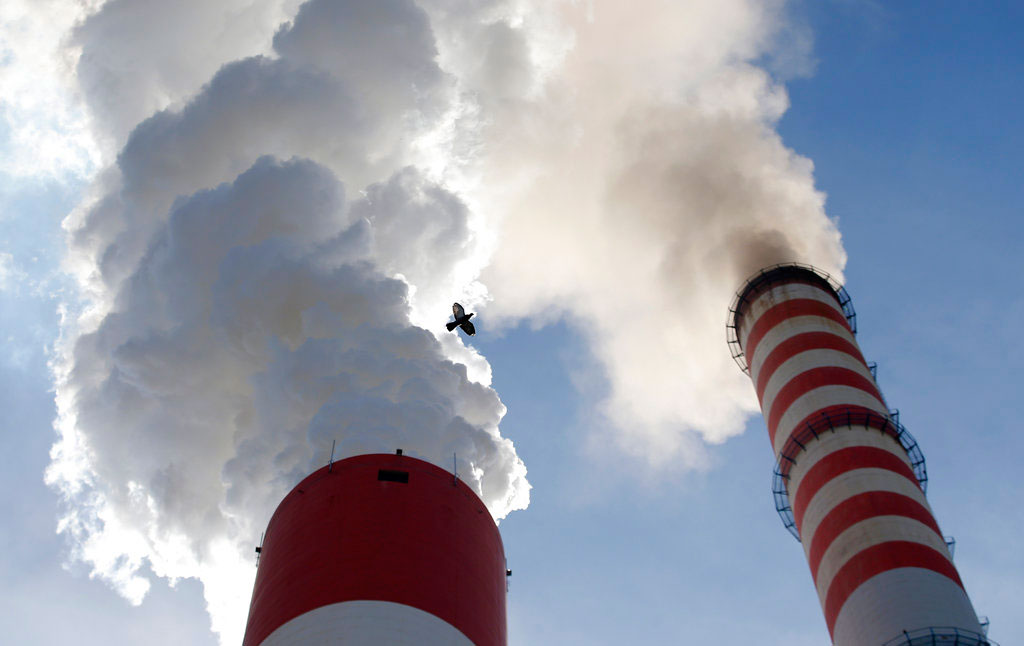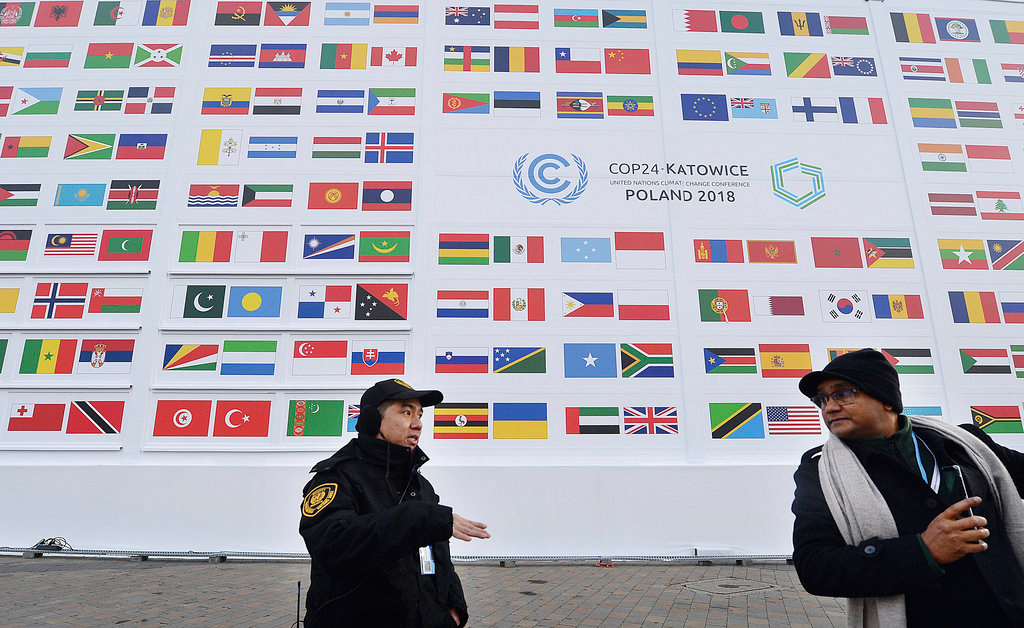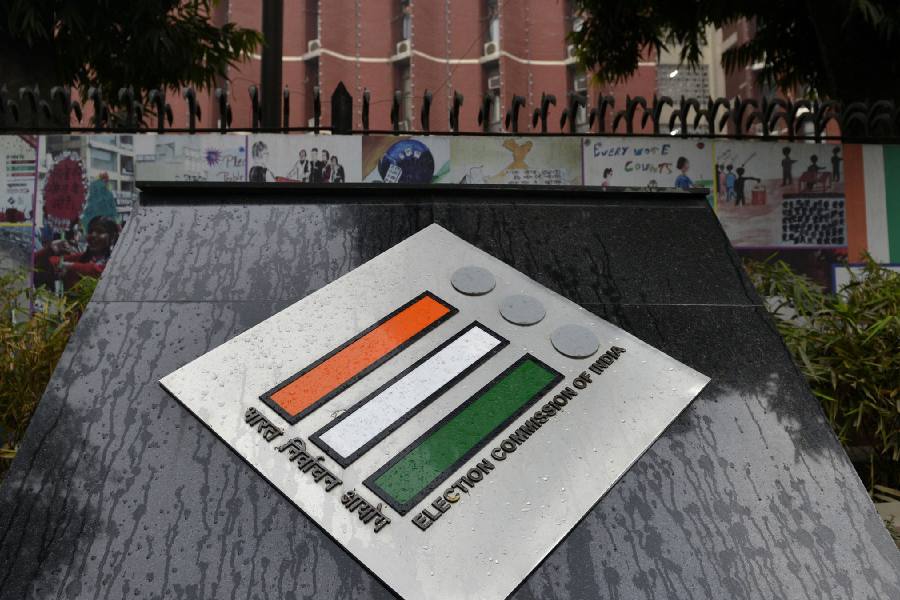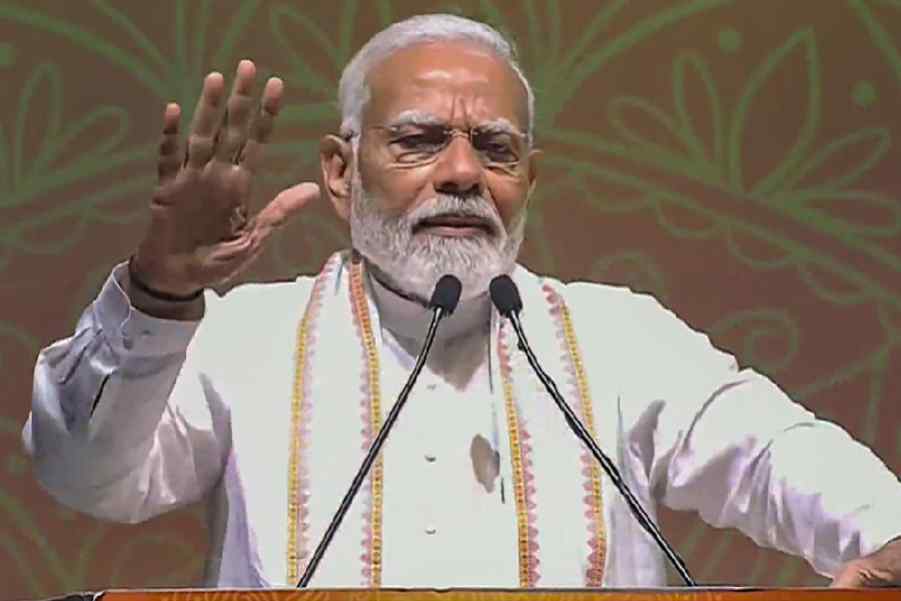India, Brazil, China and South Africa signalled on Thursday that they would be flexible on key climate issues but not at the expense of “backsliding” on the 2015 Paris Agreement that seeks climate actions by all countries to prevent runaway global warming.
Senior climate negotiators of the four-member so-called BASIC group indicated that some developed countries were trying to “revisit and open up” the Paris Agreement that has been signed by more than 190 countries.
“It may be posturing, but they seem to be pushing to reopen the Paris Agreement,” a senior negotiator from a developing country told The Telegraph. The developed countries have been “adamant on several key issues such as reporting on climate actions and finance”, the negotiator said.
Officials from over 190 countries have met in this Polish city over the past two weeks to work out a rulebook for the Paris pact that seeks actions by all countries to cut Earth-warming greenhouse gas emissions to prevent the average global temperature from rising beyond 2 degrees Celsius.
“While we are willing to exercise flexibility, we will not accept anything that affects the Paris Agreement…. There should not be any backsliding on the Paris Agreement,” Arun Mehta, a senior environment ministry official and leader of the Indian delegation, said.
Derek Hanekom, tourism leader and delegation head of South Africa, explained what the BASIC countries have been considering as efforts to backslide. “We have found that there have been efforts to push back differentiation in the process… that raises the alarm bells and seems backsliding to us,” he said.
Under the concept of differentiation, developed countries with the largest historical greenhouse gas emissions have to take on climate actions different from the developing countries.
But developed countries have used the climate talks to push for a common format to report climate actions taken by various countries. The developing countries have challenged this.
Xie Zhenhua, special representative for climate change affairs in China who has been leading the country’s climate talks for close to a decade, said: “We must stick to the basic principle of the Paris Agreement and cannot deviate from that…. That is the bottom line.”
The BASIC group is also concerned that developed countries have not kept their promise of mobilising $100 billion a year to help developing countries address climate change.
The Chinese representative expressed hope that the differences on finance issues would be narrowed down once a new text on finance comes out, which is expected soon.
Civil society leaders seconded the allegation of backsliding in parts of developed countries led by the US, Australia and Japan, with the European Union choosing to remain unengaged.
The developed countries appear hesitant to take up issues such as loss and damage, which deals with financial compensation for climate impacts, said non-government observers at the summit.
“Loss and damage, and to a certain extent adaptation, have been put in the back burner by the developed countries,” said Chandra Bhushan of the Delhi-based environmental think tank Centre for Science and Environment.
Harjeet Singh, global lead of ActionAid, alleged that developed countries do not even want to utter the phrase “loss and damage” — broadly meaning liability of developed countries for losses and damage already incurred — though it was accepted in the Paris Agreement.












